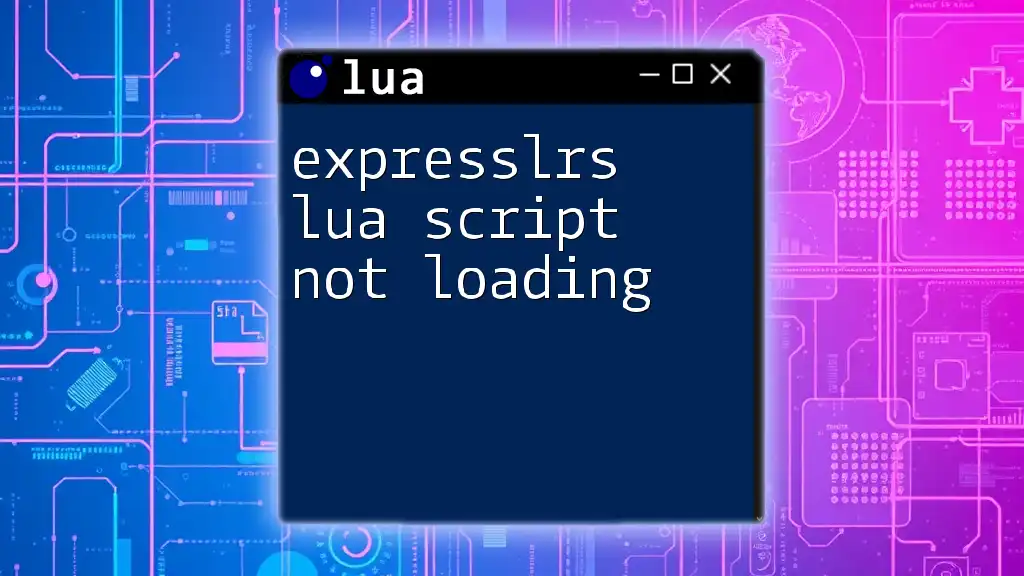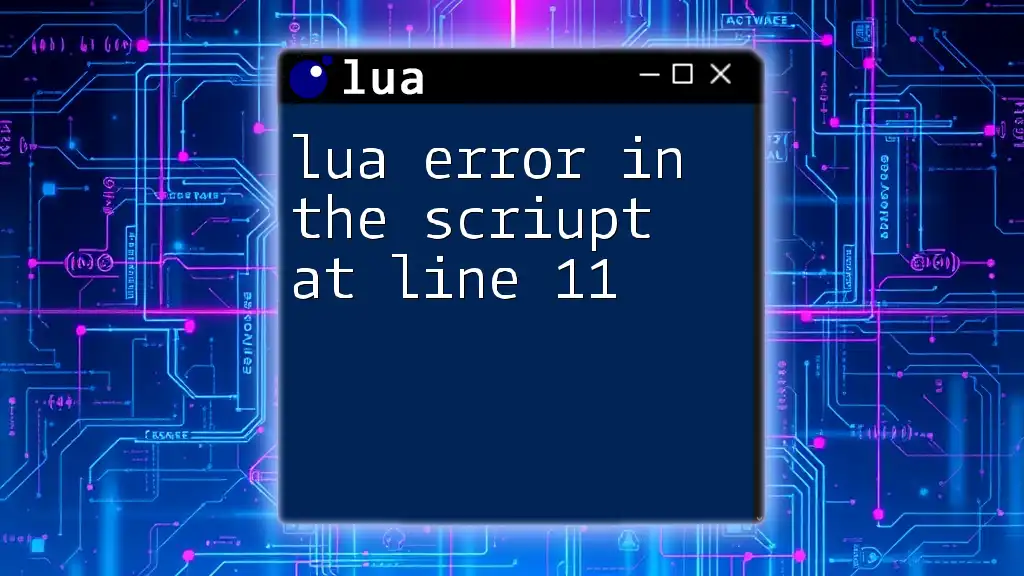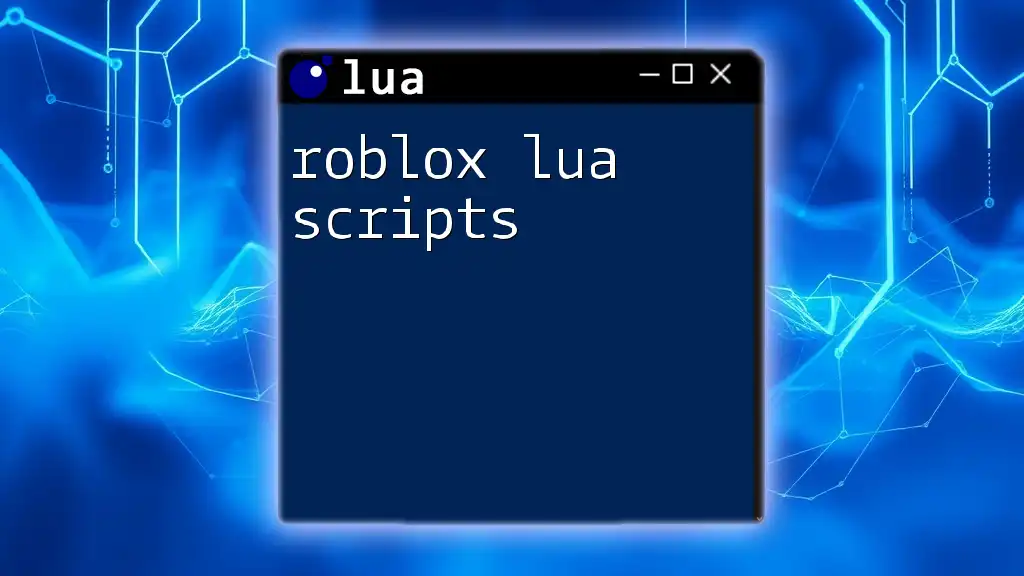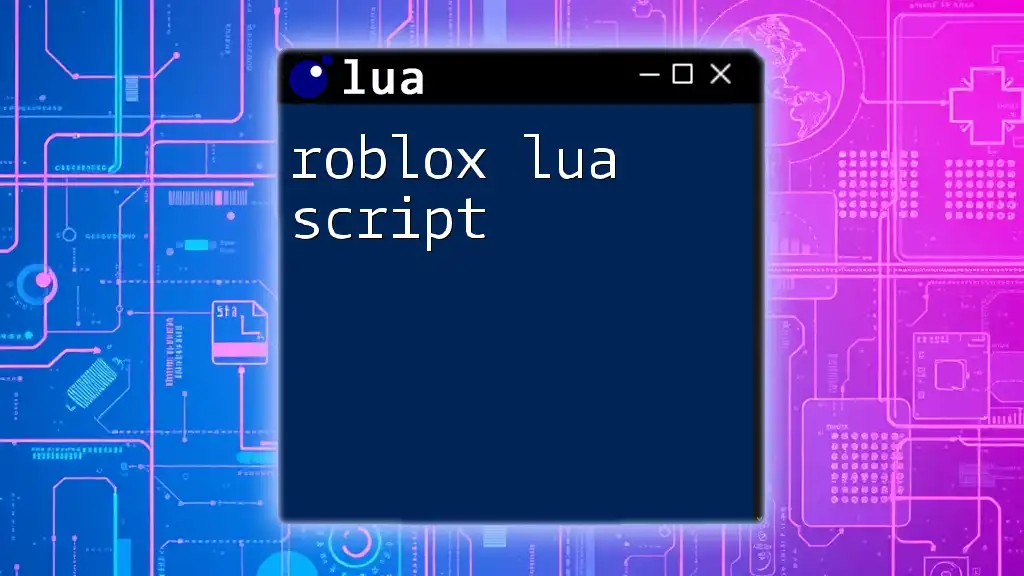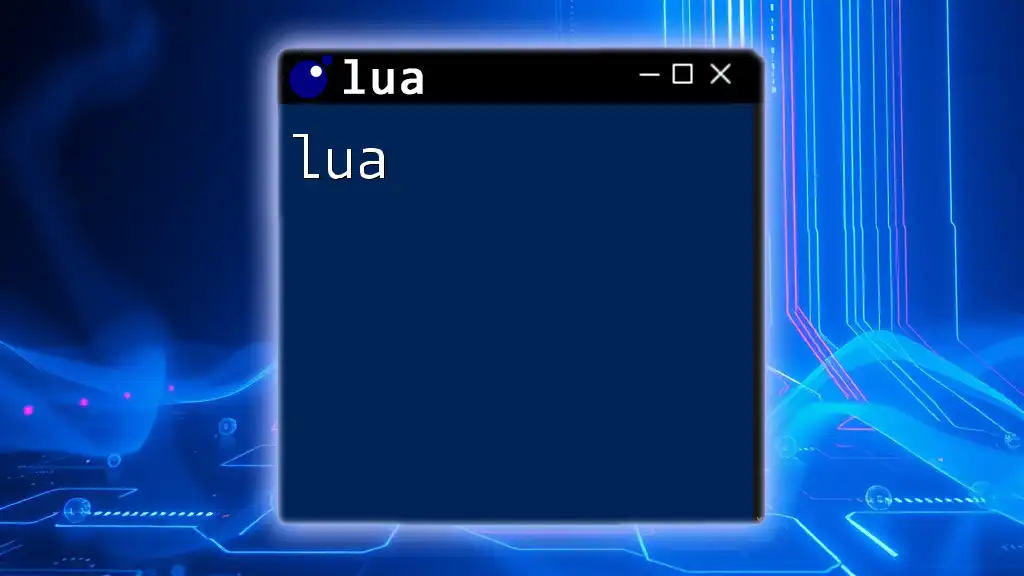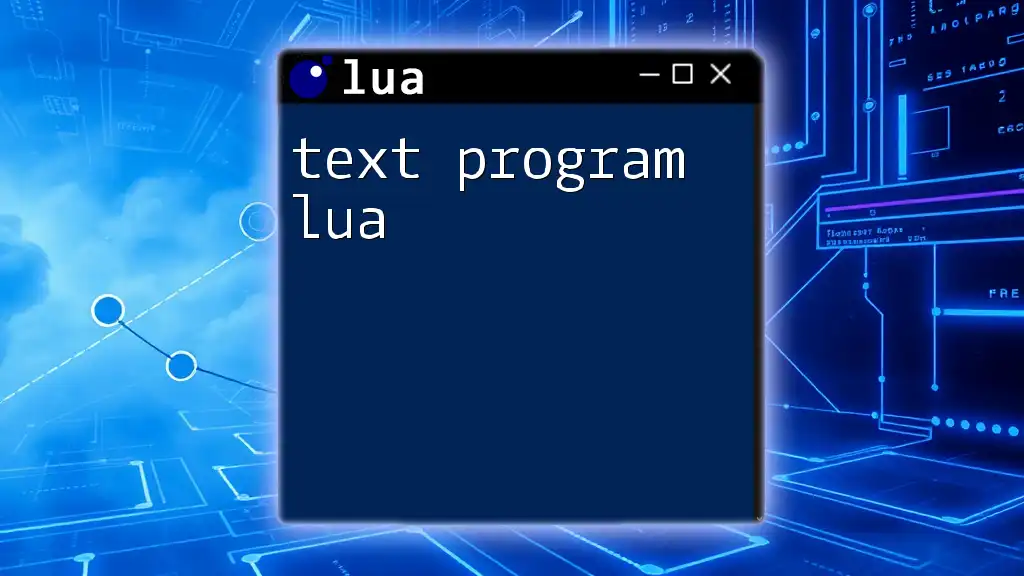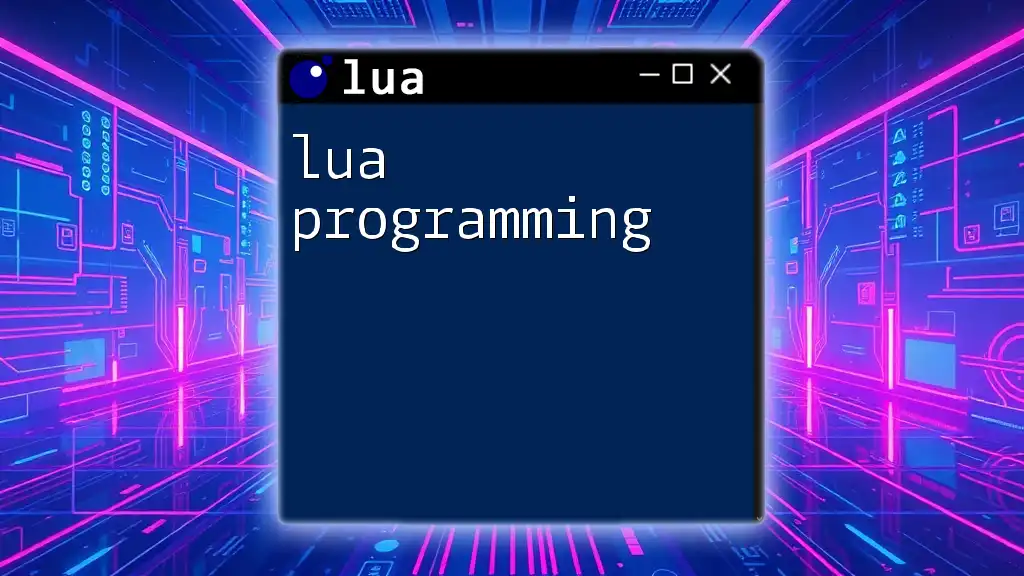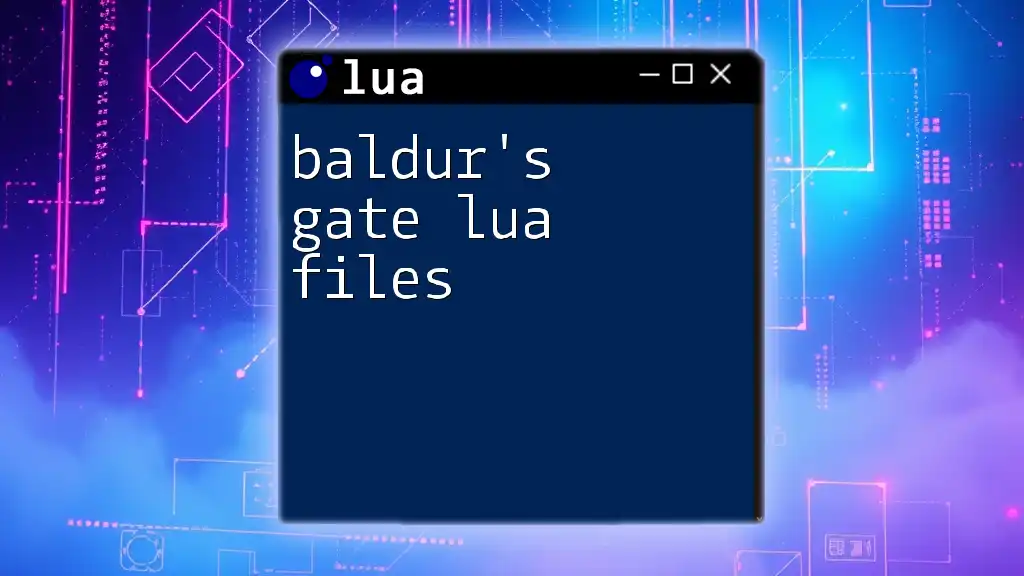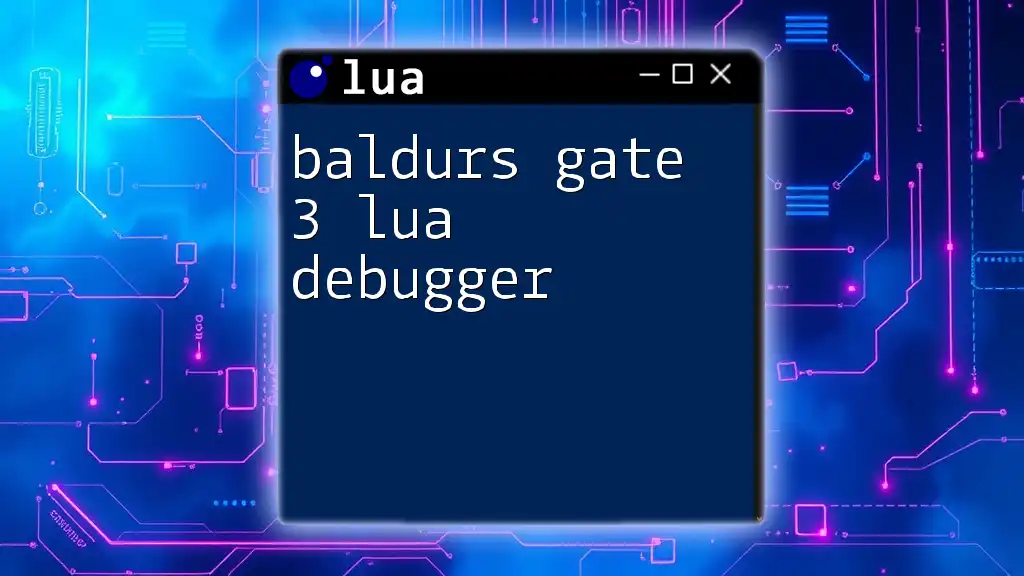If the ExpressLRS Lua script is not loading, it may be due to incorrect file placement or missing dependencies; ensure the script is in the correct directory and check your configuration.
-- Ensure ExpressLRS Lua script file is placed under /path/to/your/scripts/
local scriptPath = "/path/to/your/scripts/expresslrs.lua"
if fileExists(scriptPath) then
dofile(scriptPath)
else
print("Error: ExpressLRS Lua script not found!")
end
Understanding Lua Scripting in ExpressLRS
What is Lua Scripting?
Lua scripting is a powerful, lightweight programming language that is widely used for application scripting in embedded systems. It allows users to write scripts that can execute tasks ranging from telemetry display to complex control functions in ExpressLRS. The benefits of using Lua scripts in ExpressLRS include enhanced functionality, custom telemetry readouts, personalized control setups, and streamlined integration with other components such as flight controllers and transmitters.
How Lua Works with ExpressLRS
Lua scripts integrate crucially with the ExpressLRS system by executing commands that communicate with your hardware, typically the radio transmitter. When a script is loaded, it allows users to interact in real-time, providing feedback and changing device settings dynamically. Common Lua commands include telemetry display, channel manipulation, and control adjustments, contributing significantly to improved user experience.
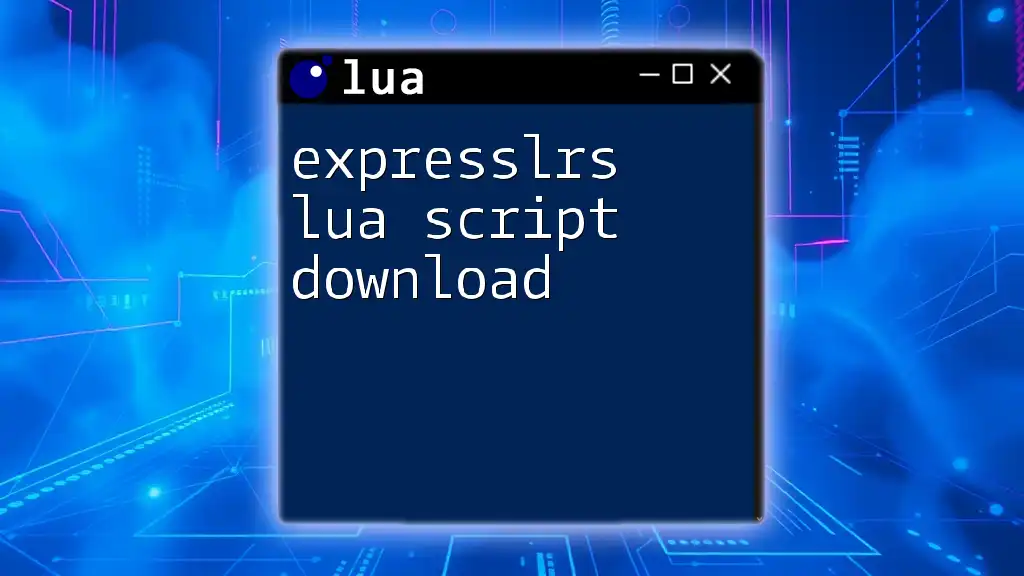
Common Issues with ExpressLRS Lua Scripts
Why Lua Scripts Might Not Load
There are several reasons why you might encounter the problem of "expresslrs lua script not loading." Understanding these reasons can help you address the issue effectively. Some common causes include:
- File format issues: Lua scripts must have the correct file format and extension.
- Path problems: The location of the script on the device may not be correct.
- Compatibility issues: The version of the ExpressLRS firmware could be incompatible with the Lua scripts.
- Syntax errors: Mistakes in script syntax can prevent proper loading.
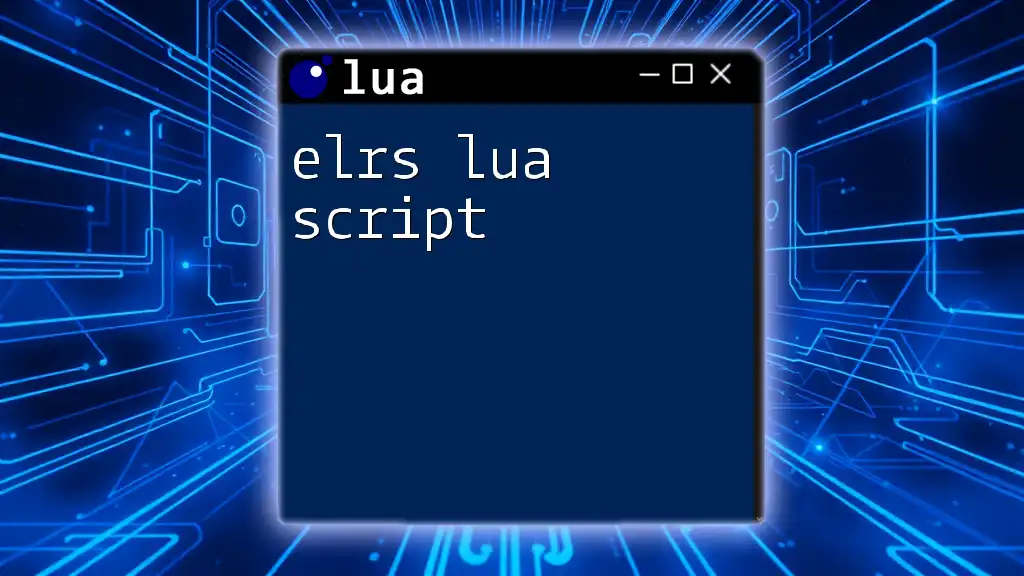
Troubleshooting Steps
Checking the Script File Format
One of the primary steps to troubleshoot when your expresslrs lua script is not loading is to check the file format. Lua scripts must use a .lua extension. If your script file, for instance, is saved with a .txt extension, it won’t execute correctly.
Here’s an example of a properly formatted Lua script:
print("Hello from ExpressLRS!")
Make sure that your script adheres to this format before testing again.
Verifying File Path
The Lua scripts must be stored in the appropriate directory for them to be recognized by ExpressLRS. Usually, scripts need to be placed in the `/scripts` directory of your transmitter. Make sure to double-check your file path and ensure it matches the required structure. Confirming that your scripts are stored correctly can often resolve loading issues.
Assessing Compatibility with Firmware
Another frequent problem occurs due to firmware compatibility. Ensure that the Lua scripts you are using are compatible with your current ExpressLRS firmware version. You can check your firmware version on your device and then consult the pertinent documentation for version-specific Lua commands. Using outdated scripts with newer firmware can often lead to unexpected errors.
Debugging Syntax Errors
Syntax errors are one of the most common culprits for scripts failing to load. Lua is sensitive to mistakes, such as missing `end` statements or typos. To illustrate, consider the following example, which contains a typical syntax error:
if condition then
print("This is a valid statement")
-- Missing 'end' here
Ensure your script is clean and free of syntactical mistakes. Utilizing programs or online checkers to validate your Lua syntax before testing in ExpressLRS can save you time.
Troubleshooting Using the Lua Interpreter
The Lua interpreter can be a useful tool for testing your scripts outside of the full ExpressLRS environment. Using an interpreter, you can run simple scripts to ensure your code works as intended. Getting accustomed to this can streamline debugging and make it easier to isolate problems within your scripts.

Advanced Troubleshooting
Reviewing Logs for Errors
If you still find that your expresslrs lua script is not loading, it can be helpful to examine the logs generated by your device. These logs often contain error messages or warnings that provide insight into what went wrong. Checking error logs is a key step in troubleshooting, as they can inform you about the nature of the problem, whether it is a syntax error or a path issue.
Increasing Lua Script Debugging
Adding debugging lines in your Lua script is an effective way to pinpoint where an error occurs. Using simple `print()` statements can help track down the execution flow and understand where things may be going wrong. For example:
print("Starting script...")
-- Your Lua code goes here
print("Script finished...")
By strategically placing these statements, you can gather valuable information about your script's execution behavior.
Reinstalling or Updating Firmware
If after all troubleshooting efforts, your expresslrs lua script is not loading, consider reinstalling or updating your ExpressLRS firmware. Firmware upgrades often come with bug fixes and enhancements that provide better compatibility with Lua scripts. Make sure to back up any custom settings and scripts before proceeding with a firmware update to avoid losing your valuable configurations.
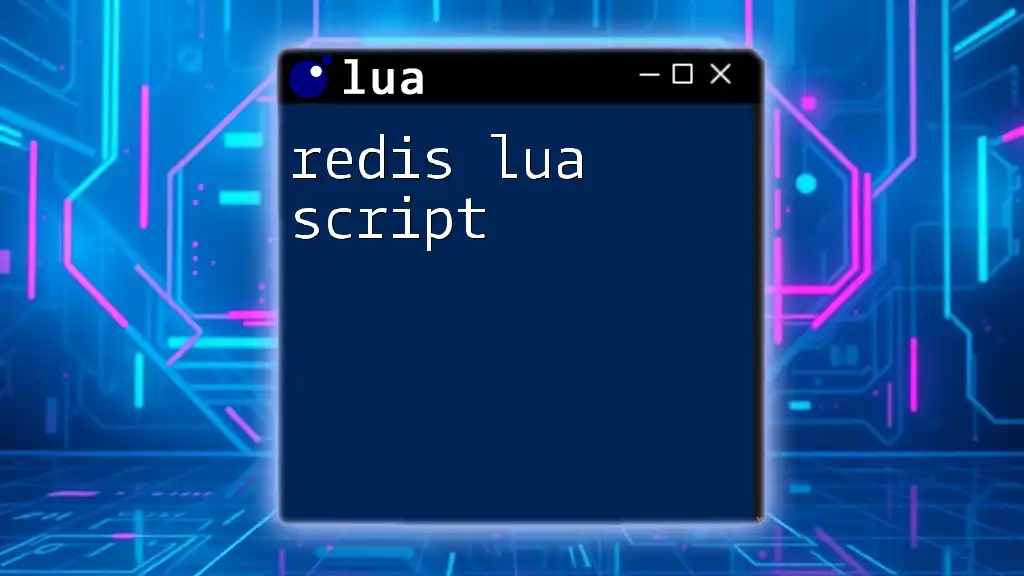
Best Practices for Writing Lua Scripts
Organizing Code
To minimize the chances of encountering issues with your scripts, consider organizing them in a clear structure. Group related functions together and use spacing effectively to enhance readability. A well-structured codebase will not only help in debugging but also make future modifications easier.
Using Comments Effectively
Utilizing comments in your Lua scripts can greatly improve understandability, especially when revisiting code after some time. Comments explain the purpose of specific code sections, aiding in both development and debugging. Here’s an example of how comments can be used effectively:
-- This is a comment explaining what the following line does
print("Example")
Incorporating comments ensures that anyone reviewing your script, including your future self, can follow along with the purpose and functionality of the code.
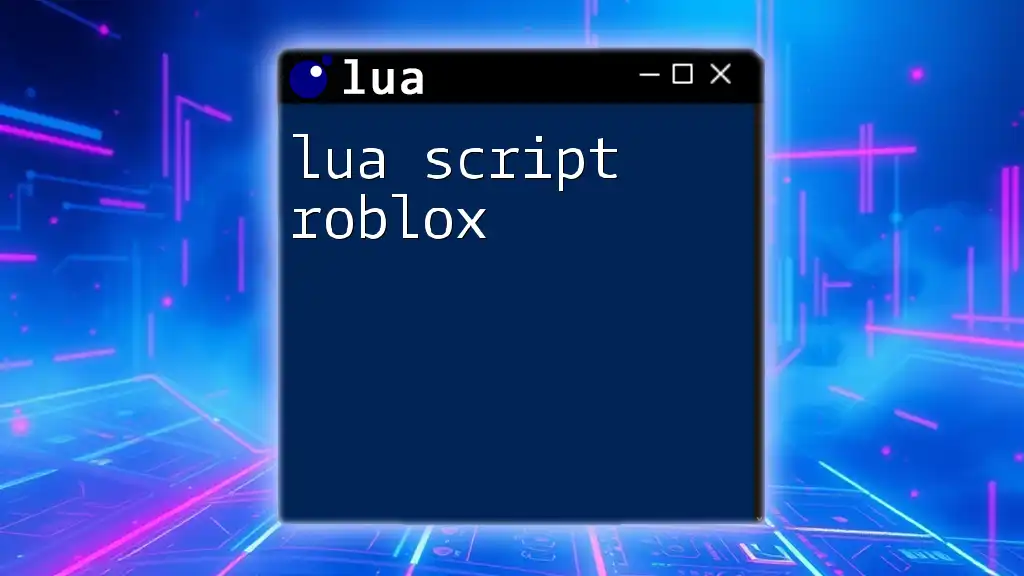
Conclusion
Troubleshooting issues related to your expresslrs lua script not loading can be a daunting experience. However, through methodical checking of file formats, paths, compatibility considerations, syntax debugging, and diligent use of logging, you can often resolve these issues effectively. Emphasizing best practices in script writing, such as organization and commenting, can further enhance your programming experience. Don't hesitate to engage with the community for support and share your experiences. Happy scripting!
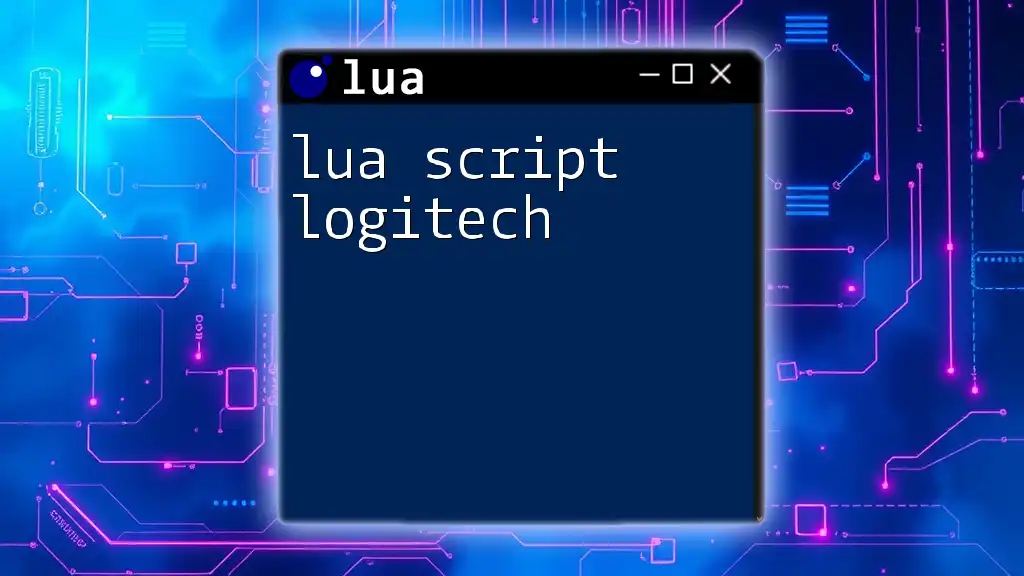
Additional Resources
While this guide provides a comprehensive overview, it’s essential to consult official documentation and actively participate in forums dedicated to ExpressLRS and Lua scripting. These resources can provide additional insights, updates, and community-driven support for users navigating similar challenges.

